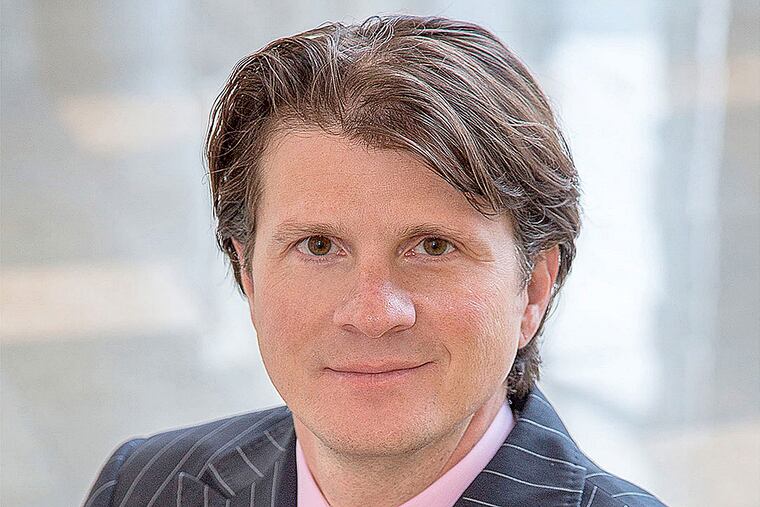Capital Health System says superstar recruit raided doctors after he left
High-quality stroke care was supposed to put the Capital Health System Inc. on the map when it went deeply into debt to open a $530 million hospital along I-95 in Hopewell Township in 2011.

High-quality stroke care was supposed to put the Capital Health System Inc. on the map when it went deeply into debt to open a $530 million hospital along I-95 in Hopewell Township in 2011.
To make it happen, Capital recruited highly regarded neurosurgeon Erol Veznedaroglu from Thomas Jefferson University Hospital, betting that Capital could attract patients who historically went to teaching hospitals in New York and Philadelphia.
It didn't work out. Facing an exodus of physicians and other professionals from its neurosciences program, Capital last week sued Veznedaroglu and his new employer, Drexel University, in federal court in New Jersey for $80 million in damages.
Capital's 47-page lawsuit, which accused Veznedaroglu of raiding doctors from Capital's program, is a case study of what can go wrong when a struggling system bets on a star surgeon, and the relationship falls apart.
The case also highlights the region's shifting alliances as hospitals, especially struggling ones, compete for patients needing complex, high-priced care.
Capital and Veznedaroglu, while critical of one another in court, both said in statements this week that they were acting to protect patients' best interests.
Such a public dispute is rare.
"In recent years, superstar physicians have begun to behave more like athletes and move around some," Alan Zuckerman, chairman of Veralon Partners, a Philadelphia health-care consulting firm, said in an email.
That sometimes leaves hospitals "with significant sunk costs in facilities and equipment," he said.
So it is with Capital, which said it spent $60 million building what amounted to a hospital within a hospital for the Capital Institute for Neurosciences, plus $10 million more to support Veznedaroglu's practice.
Capital tacked on $10 million more in alleged damages to account for what the lawsuit called "interference with Capital's relationships with contracted physicians." At least five doctors have left Capital to join Veznedaroglu at Drexel, Capital said.
The lawsuit also alleged that Veznedaroglu and Drexel "have stolen and taken hostage Capital's transfer hotline telephone number," which is posted in emergency departments at non-Capital hospitals, "diverting significant patient volume away from" Capital.
With $133 million in net losses in the three years ending Dec. 31, Capital can ill afford to lose revenue. It also shoulders a massive $726 million debt load on total assets of $1 billion.
Led by Veznedaroglu, the Capital neurosciences program built a network of hospitals where Capital supplied neurological and spinal care. In January 2014, Capital received more than 160 transfers that month from partners, the suit says. That fell to less than 70 by September 2015, which Capital blamed on the surgeon.
The Capital network included South Jersey-based Inspira, which in January announced it was moving its affiliation to Jefferson.
It also included Lourdes and Aria Health, which are using Veznedaroglu, though Aria is also expected to go with Jefferson, given the two systems' pending merger.
Capital's lawsuit blamed the Lourdes and Aria defections on Veznedaroglu. It did not mention Inspira.
Virtua, another system that has used Capital, recently announced an affiliation with the University of Pennsylvania Health System for neurosciences.
A spokeswoman for Capital declined to comment on the suit.
"We have an obligation to protect the investment we made to develop a highly specialized facility and program, as well as our ability to continue providing the exceptional care we are known for," Steffanie Archbald said.
Veznedaroglu called the suit a "shameless attempt to stifle competition and restrict access to quality neurosurgical services."
A Drexel spokeswoman declined to comment.
Mark Pauly, professor of health-care management at the University of Pennsylvania's Wharton School, said the impact of star physicians is often overstated because patients rarely know them.
As for the loss of a superstar, Pauly said, it "seems like a much bigger problem for medium-sized hospitals trying to make a splash than for major teaching hospitals."
215-854-4651
@InqBrubaker